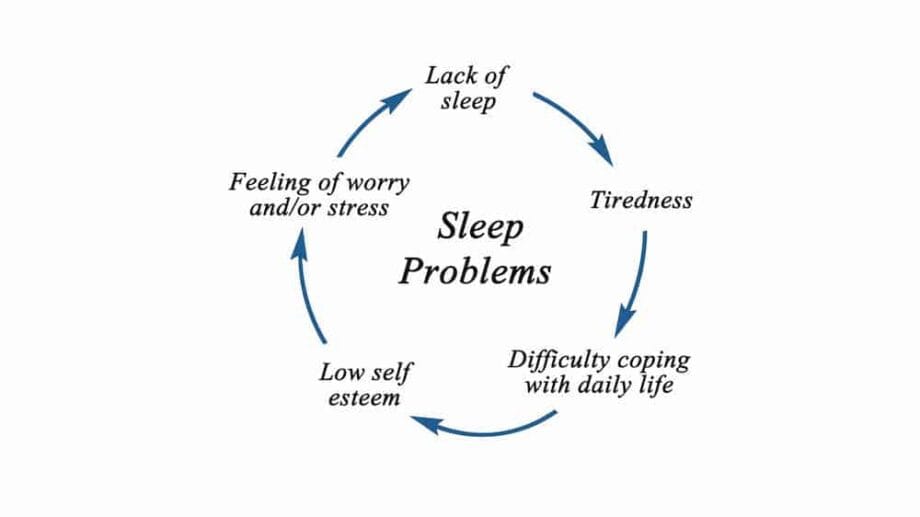Can Bad Sleep Make You Gain Weight?

Lifestyle Wednesday: Prioritizing Sleep for Weight Loss
Picture this: You’ve followed your meal plan all day, crushed your workout, and feel good about your progress.
But when bedtime rolls around, you find yourself scrolling on your phone or tossing and turning for hours. Sound familiar?
We often underestimate the power of a good night’s sleep. Yet, when it comes to weight loss, sleep might be the missing piece to your success.
Sleep is not just a time for your body to rest—it’s a critical part of how you manage stress, make food choices, and balance your metabolism.
Let’s explore how improving your sleep can help you achieve your weight loss goals, and I’ll give you some practical tips to get started.
How Sleep Affects Your Weight
You might be thinking, “What does sleep have to do with my weight?” A lot, actually!
When you’re sleep-deprived, your body’s hormonal balance goes haywire. Specifically, the hormones ghrelin (which makes you feel hungry) and leptin (which tells you when you’re full) get disrupted. Lack of sleep raises ghrelin and lowers leptin, which means you’re more likely to crave sugary, high-calorie foods and feel less satisfied after eating.
It’s not just about the cravings, though.
Poor sleep also slows your metabolism and makes it harder for your body to burn fat. Plus, when you’re tired, you’re less likely to hit the gym or even move much during the day, further stalling your progress.
The Sleep-Stress Connection

Have you ever noticed that you feel more stressed and anxious after a poor night’s sleep?
That’s because your body is in overdrive, producing more cortisol—the stress hormone.
High levels of cortisol can lead to increased fat storage, especially around your midsection. This stress cycle also affects your decision-making, so when you’re tired and stressed, it’s much harder to stick to your healthy eating habits.
Prioritizing sleep can be a game-changer, helping you feel calmer, more focused, and in control of your weight-loss journey.
How to Improve Your Sleep: Practical Tips
Improving your sleep isn’t as hard as it sounds. Start with these sleep hygiene tips:
1. Set a Consistent Sleep Schedule
Go to bed and wake up at the same time every day—even on weekends. This trains your body to recognize when it’s time to wind down.
2. Create a Sleep Sanctuary
Make your bedroom a calming space. Keep it dark, cool, and quiet. Try blackout curtains, a white noise machine, or even earplugs if necessary. Clear away clutter to make it a place where you can relax.
3. Limit Screen Time
Scrolling through social media or watching TV before bed might feel relaxing, but the blue light from screens can mess with your body’s production of melatonin, the hormone that signals it’s time to sleep. Try to turn off screens at least an hour before bed.
4. Relaxation Techniques Before Bed
Engage in calming activities like reading, meditating, or taking a warm bath to signal to your body that it’s time to wind down. You can also try deep breathing exercises or progressive muscle relaxation to ease tension.
The Impact of Poor Sleep on Food Choices and Metabolism
Poor sleep doesn’t just leave you feeling tired—it changes the way you eat.
Studies show that when we don’t sleep enough, we’re more likely to overeat the next day, particularly reaching for high-carb, sugary foods that spike our blood sugar and leave us craving more.
This happens because lack of sleep alters how our brain processes rewards.
So, even though you know better, your brain convinces you that a doughnut or pizza slice is exactly what you need.
Your metabolism also takes a hit when you’re sleep-deprived, as your body becomes less efficient at using insulin, which can lead to weight gain over time.
Action Step: Create Your Nighttime Routine
Tonight, take the first step toward better sleep by creating a nighttime routine. Start by setting a regular bedtime, turning off your devices early, and winding down with a calming activity.
Stick with this routine for a week and see how your sleep—and your weight loss efforts—improve!
Here’s to restful nights and reaching your goals!
Until Next Time
RD Bert